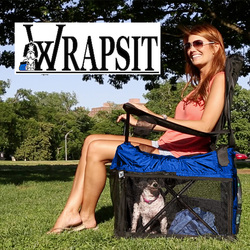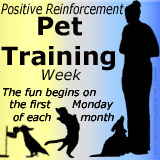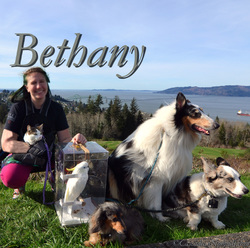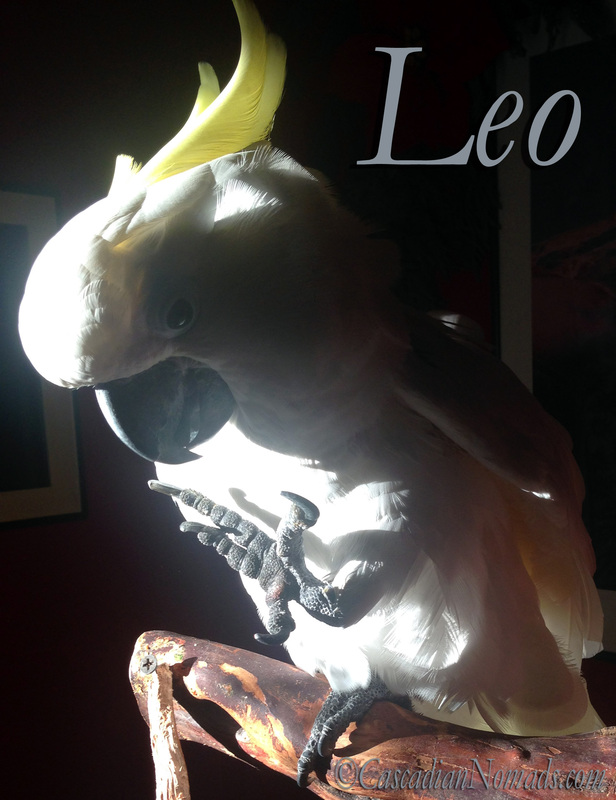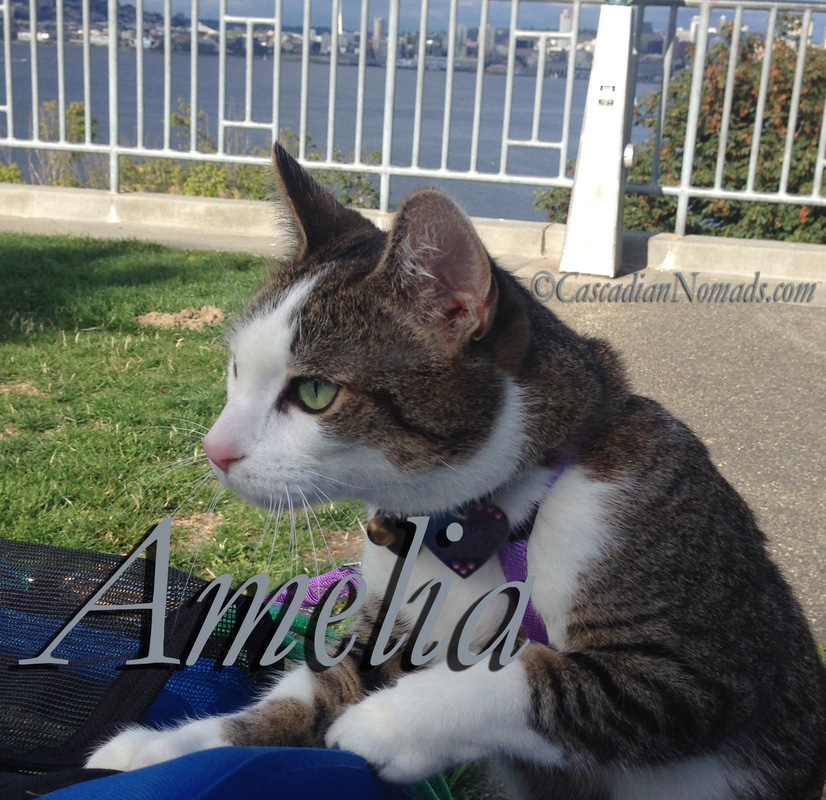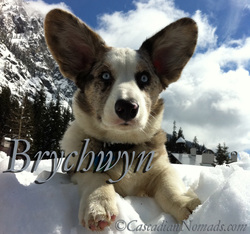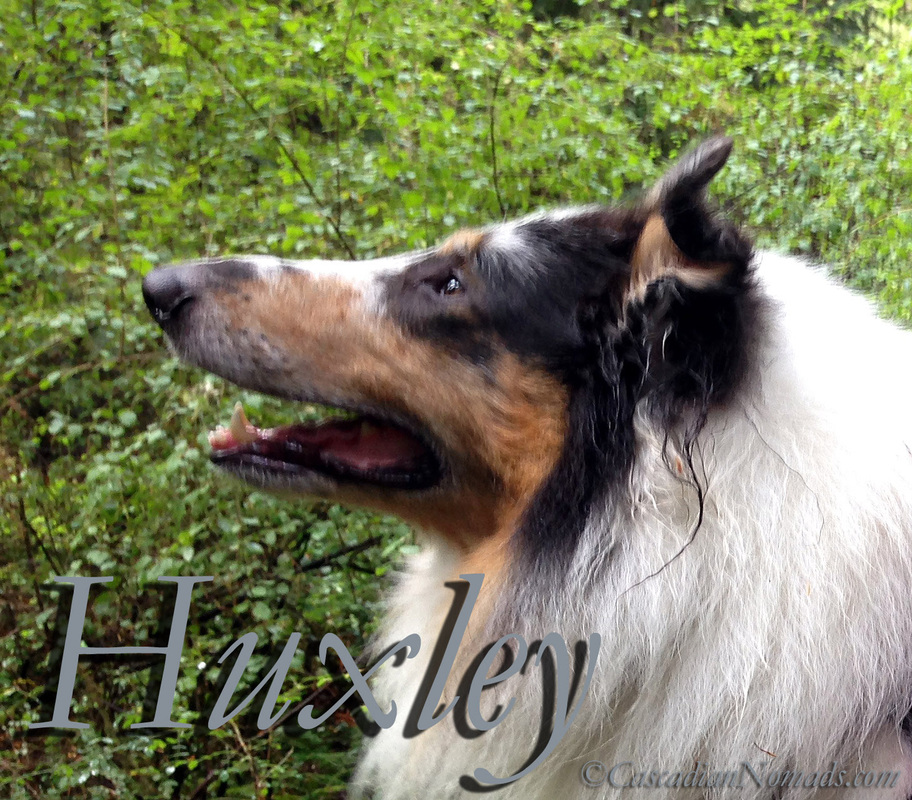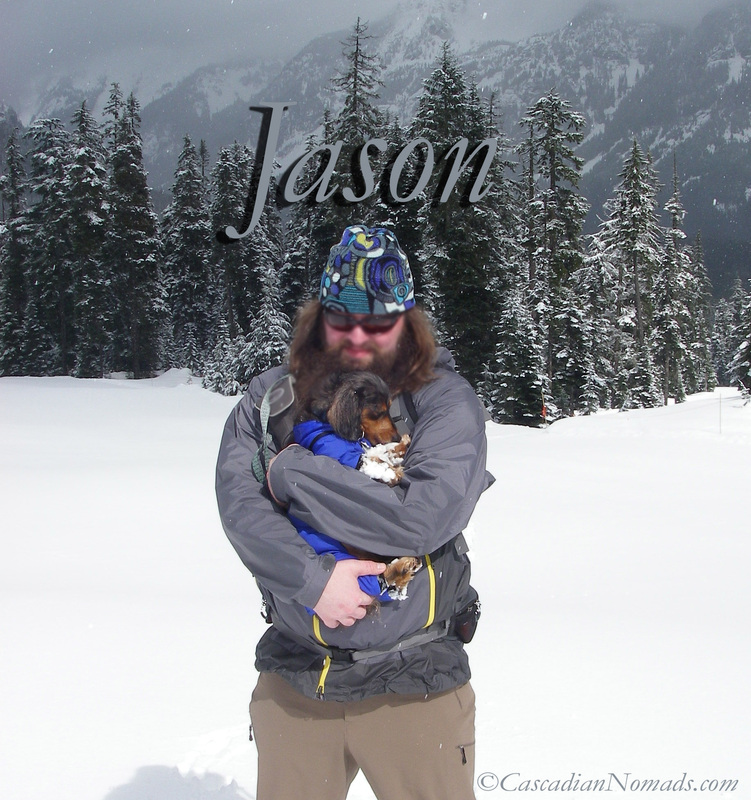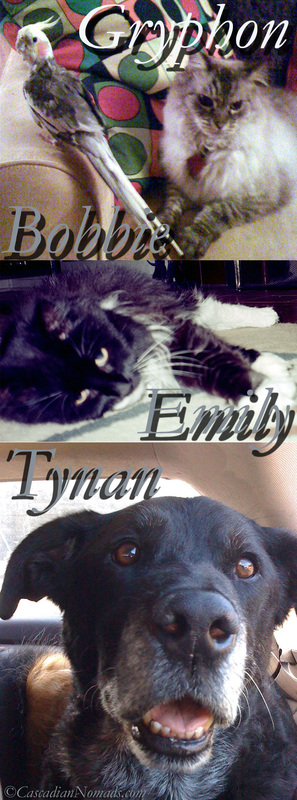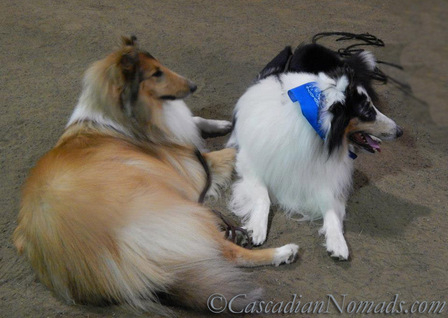 Hearing and balance assistance dog, MacTavish, relaxes with his brother, Huxley.
Hearing and balance assistance dog, MacTavish, relaxes with his brother, Huxley. Assistance dogs come in all shapes and sizes and serve many purposes. Training and socialization for assistance dogs is very different work from training pets or for sport. While I have known a few service dogs, I know very little about assistance dog training. Fortunately, when I attended Huxley's collie family reunion in June, I had the pleasure of meeting Kathryn, trainer and handler of Huxley's very handsome brother MacTavish, who works as her hearing and balance assistance dog. Like me, Kathryn began her dog training journey as a pre-teen, training obedience to make her dogs exceptional pets but also for competition. But in her early 20's, when Kathryn mysteriously began to lose her hearing, she learned that even without being completely deaf, she qualified for a guide dog. After eleven months on a waiting list, a trainer from International Hearing Dogs, Inc delivered to Kathryn a collie mix named K.C. "Thus began my journey with service dogs," Kathryn reminisced, "K.C. taught me the difference between a well trained pet and what a service dog is."
"I have little doubt that if not for K.C. I might not be around," Kathryn tells me. "In summer of 2000, we had a small house fire that originated in the kitchen. I say 'small' only because there wasn't much in the way of the flames having spread. However, there was a huge amount of smoke throughout the house. I had been sound asleep with the bedroom door closed and was awakened by K.C. jumping on the bed, just as he did each morning to wake me up when my alarm clock went off. I took a sleepy look at the clock and noticed it was not nearly time to get up yet. I ordered K.C. off the bed and tried to turn over to go back to sleep. K.C. got off the bed, but within a couple of seconds jumped right back up to rouse me. Again, I ordered him off the bed. Again he jumped off, only to jump right back on! I finally relented believing that he must be having a bathroom emergency and I should let him out to relieve himself. The moment I opened the bedroom door, I was hit in the face with an almost solid wall of smoke! Thanks to K.C., I was able to get myself and the other pets in the house out in time."
"I cannot imagine life without a service dog."
Kathryn tells me she uses a variety of incentives for training her dogs. While she does occasionally use food or treats, especially for puppies or young dogs, she prefers "tons of praise and physical petting." Like me, Kathryn is a one woman cheering section while training: "I'm sure there are enough people who think I'm daft and have gone off my rocker when they see me working with my dog. I use a high-pitched voice and have even clapped and given a little jump to let my dog know he has done something correctly – especially if it has been something he has taken a little longer to master. MacTavish is very play oriented, so when learning a new task, I use playing with one of his favorite toys as a reward for a job well done. I have even found some games are also very good at forming what will be a task in the future." Training a service dog is not a task that everyone should take on. Kathryn cautions that "Generally, due to the enormous amount of time and work it takes to train a service dog, I recommend that people interested in obtaining a service dog apply to an established organization that specializes in training them. There are many organizations across the country and in Canada that serve the U.S."
Like most very lucky people who are assisted by a dog, Kathryn "cannot imagine life without a service dog.' She passionately states that "MacTavish, like Wynne before him and K.C. before Wynne, enrich my life with constant companionship and they break down barriers. Without them, people see me as a person with a disability, if they see me at all." While Wilhelm, Brychwyn and Huxley's training and "jobs" seem unimportant when compared to the work that MacTavish and assistance dogs like him all over the world do, I can relate to the joy of being out and about with dogs. And whether positively training a dog for pleasant friendship or essential companionship, I think Kathryn puts if best when she states "a well trained dog is a partnership."
| This is the First Monday Positive Pet Training Blog hop hosted by Cascadian Nomads, Dachshund Nola & Tenacious Little Terrier. We're celebrating International Assistance Dog Week and hope you will join us with comments here, on social media or by linking up a blog post below. Any stories, tips, etc honoring assistance dogs or any positive reinforcement pet training are welcome this and every month. Our next hop is September 1st! |
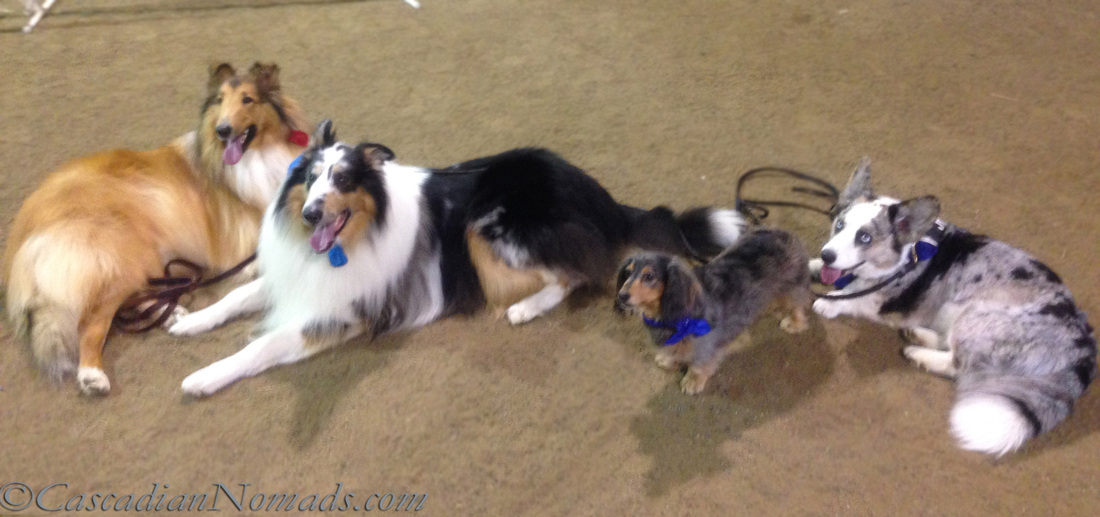
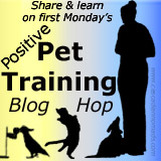
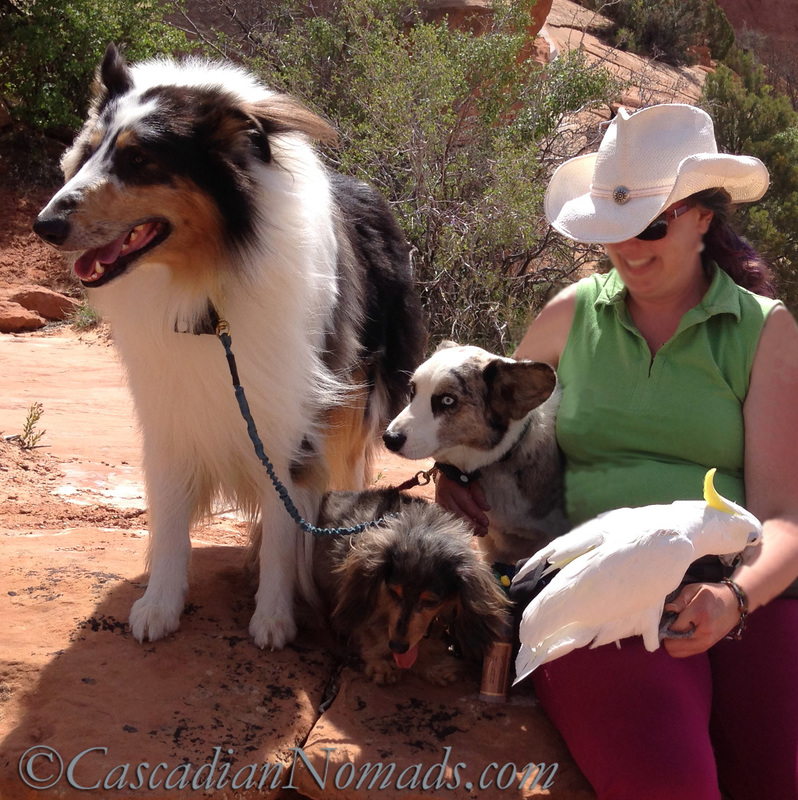
 Follow on Instagram
Follow on Instagram


